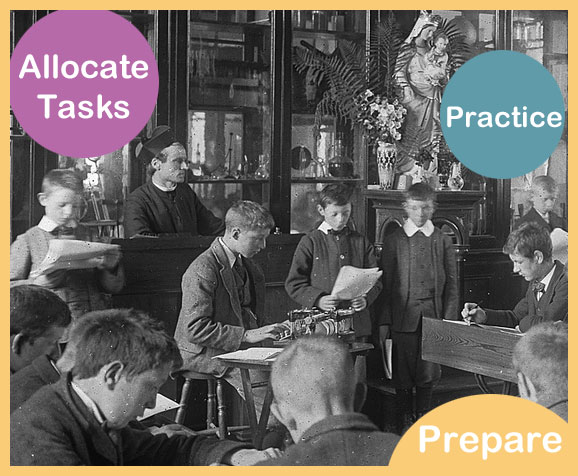Set your questions
A lot of thought needs to go into preparing questions. The students need to have a clear idea of why they are doing the interview and what they hope get from it. Teachers should, therefore, spend some time exploring with students the type of questions that are best to get information from the subject being interviewed and this could be best achieved through a brainstorming session with all students.
The background research continues at this stage too. If the student does not know much about the person they are interviewing, then they should spend some time finding information on the interviewee’s background and life experience. The purpose here is to be able to frame intelligent questions during the interview.
Things to consider
Prepare and practice for questions an interviewee may ask the student
This section is aimed at those undertaking an oral interview as part of their project for Threads. The type of questions generated here could form a questionnaire to be given to people to whom you cannot meet face-to-face – people who have emigrated or are living outside the locality, for example.
Students should be able to answer the question from the person they are interviewing who may ask: “why do you want to interview me?” Answering this question will go a long way to the students’ understanding of what they hope to achieve from the interview.
Ask open-ended questions and avoid ones that provide a list of alternative answers. Questions that prompt a long answer are really important. So, a question like: “What was it like growing up in this area?” would encourage more than a ‘yes’ or ‘no’ answer and might put the interviewee at ease. So too would be the ability to mix questions with encouragement e.g. how interjections like ‘Tell me more’ or ‘Is that so?’ can get a lot of additional information from an interviewee.Interviews may be autobiographical or topical and this will shape the type of questions being asked.
Create a list of 10 sample interview questions and get the students to practice on each other. The first questions might typically elicit basic personal information – the kind of information historians record - like the name of the interviewer and interviewee, the age of the interviewee and the date the interview took place. The interview would progress from this point to questions about the topic being explored. It may be helpful to arrange the sequence of questions so as to keep to the end any questions that might be difficult or challenging to the interviewee.
Interviewees would benefit from getting a list of questions in advance so that they could be prepared. The interviewee should clearly understand the purpose of the interview so that they can provide the most useful information possible.
Students should be advised to remain alert to the sensitivities surrounding certain stories or personal tragedies. It is important that no one is upset by being interviewed.

Prepare your release forms
Permission to publish on Threads is a requirement
A recorded interview remains the property of the interviewee until such time as he / she consents to give it to someone else. A release form is the mechanism through which this is done and such forms should make it clear to the interviewee how the interviews will be used - this will minimise the chances of misunderstandings. In addition, the form also reminds the interviewer that the person being interviewed is granting the use of something that does not belong to the interviewer.
Threads allows for the publication of interviews and it is vital that release forms are completed for all interviews published on www.scoilnet.ie/threadsIf conducting an interview with someone - but it is not being recorded - then it is not necessary to get a release form signed.
Scoilnet has prepared a release form that may be used for projects associated with the initiative.
Anyone providing information for the Threads project should be made aware that the information will be published on the Internet, and may be shared with other websites in Ireland and globally. As a courtesy, the final content should be reviewed by the person interviewed, prior to publishing.


